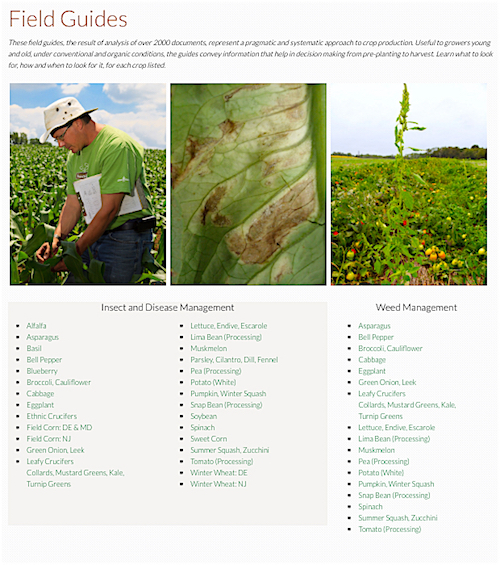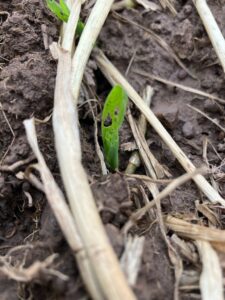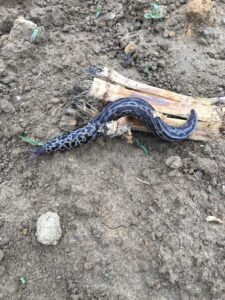Sweet Corn
European corn borer (ECB) moth captures are fairly steady at low levels in northern and central county light traps. Feeding has been detected in some whorl and pretassel stage plantings where scouting is occurring. Thus far, feeding has been mostly in single digit percentages, although one planting in Somerset County approached 20% plants infested. Feeding may be expected to rise modestly over the next two weeks. Whorl corn is the primary target for egg laying. Feeding may be present at higher numbers in the southern counties.
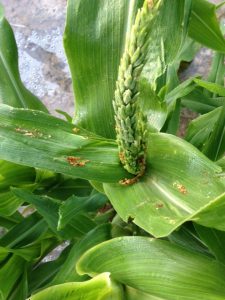 Look for the characteristic “shot-hole” type of feeding (photo below at right) and consider treating when infested plants exceed 12% in a 50 plant sample. As plantings proceed to the pre-tassel stage, ECB larvae may be found in emerging tassels (see photo at left). It is a good idea to treat individual plantings as they move into the full tassel/first silk stage one time. This eliminates any ECB larvae that have emerged with the tassels as they begin to move down the stalk to re-enter near developing ears.
Look for the characteristic “shot-hole” type of feeding (photo below at right) and consider treating when infested plants exceed 12% in a 50 plant sample. As plantings proceed to the pre-tassel stage, ECB larvae may be found in emerging tassels (see photo at left). It is a good idea to treat individual plantings as they move into the full tassel/first silk stage one time. This eliminates any ECB larvae that have emerged with the tassels as they begin to move down the stalk to re-enter near developing ears.
Useful insecticides for this particular application include synthetic 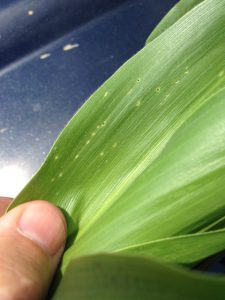 pyrethroids (IRAC Grp 3), spinosyns (including OMRI approved Entrust) IRAC Grp 5), and diamides such as Coragen or Vantacor (IRAC Grp 28) or materials such as Besiege which include the active ingredient in Coragen. It should be noted that Coragen or Vantacor, used alone, are not toxic to bees that may be visiting corn tassels during this stage. Synthetic pyrethroids alone should NOT be used for corn earworm (CEW) protection on silking corn. Control with these materials is very inconsistent.
pyrethroids (IRAC Grp 3), spinosyns (including OMRI approved Entrust) IRAC Grp 5), and diamides such as Coragen or Vantacor (IRAC Grp 28) or materials such as Besiege which include the active ingredient in Coragen. It should be noted that Coragen or Vantacor, used alone, are not toxic to bees that may be visiting corn tassels during this stage. Synthetic pyrethroids alone should NOT be used for corn earworm (CEW) protection on silking corn. Control with these materials is very inconsistent.
The highest nightly trap catches of ECB for the week ending 6/05/24 are as follows:
| Asbury 1 | Lawrenceville 1 |
| Clinton 1 | Milford 1 |
| Dayton 1 | Oldwick 1 |
| Georgetown 1 | Princeton 1 |
| Hillsborough 1 | South Branch 1 |
 Articles in this section contain information helpful to the NJ commercial organic grower.
Articles in this section contain information helpful to the NJ commercial organic grower.